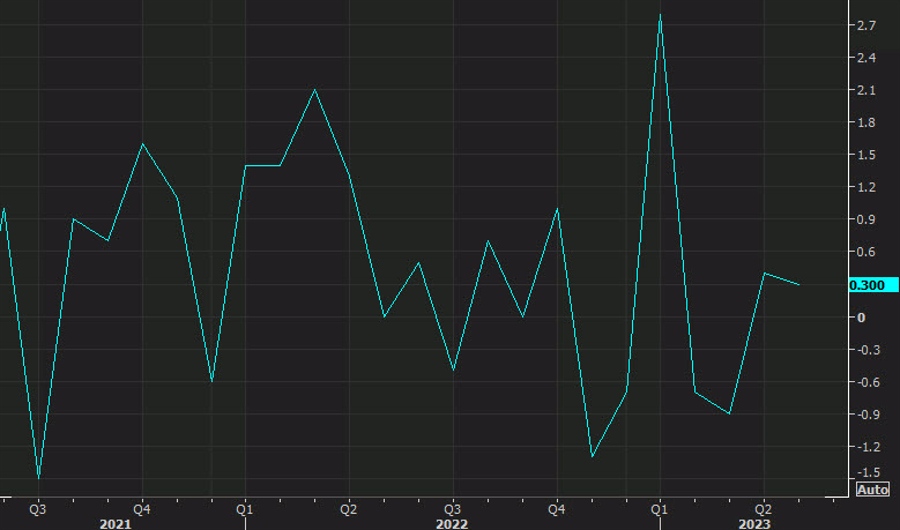US May retail sales (headline)
CIBC reviews today’s US retail sales report and notes that the overall picture is of a consumer that’s slowly decelerating. They note that real control group sales are still 3.9% above the pre-pandemic trendline and that leaves “excesses to be drained”.
I wonder if the boost in housing prices doesn’t leave that at a higher plateau than otherwise.
As for the report itself, they highlight strong contributions from auto sales:
In contrast to the earlier released unit auto sales data, receipts at car dealerships were up strongly, although some of
that will reflect higher prices for used cars. Inventories at car dealerships are still strained, and pent-up demand
remains following shortages during the height of the pandemic, which has made demand in the sector less sensitive
to higher interest rates during this hiking cycle.
They note that discretionary categories including restaurants, online shopping, sporting goods, and department stores saw
further increases in sales, although the pace eased off in most categories after surging in the prior month.
Notably, the retail sales data isn’t adjusted for prices so the numbers need to be adjusted for inflation. With that, the control group was up just 0.1% in volume terms.
Like the Fed, CIBC is focused on the labor market going forward.
A slowdown in the labor market ahead should work to cool retail sales further from here, in combination with the
depletion of pandemic-accumulated excess savings. That will be a key to stalling growth in the quarters ahead in order to
get inflation back to target
